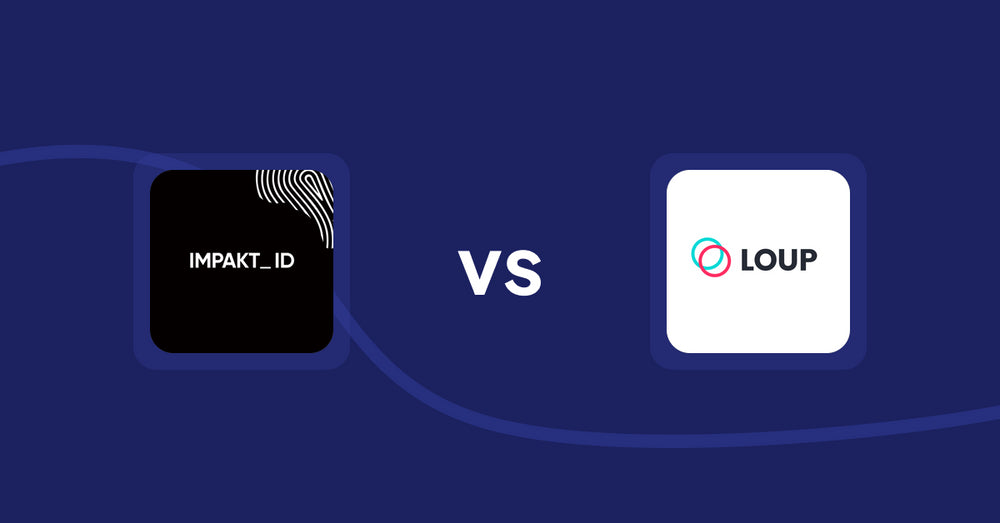Shopify Product Display Apps: DIY Quantity Calculator vs Pasilobus Wishlist Supply List

Table of Contents
- Introduction
- How Does DIY Quantity Calculator Work?
- How Does Pasilobus Wishlist Supply List Work?
- How Much Does DIY Quantity Calculator Cost?
- How much does Pasilobus Wishlist Supply List cost?
- Cost Analysis: DIY Quantity Calculator vs. Pasilobus Wishlist Supply List
- User Reviews & Customer Support Insights
- Integration and Compatibility Comparison
- Conclusion
Introduction
In the realm of e-commerce, product display significantly influences customer decisions and buying behavior. Studies show that effective product presentation enhances user engagement and can lead to increased sales conversions. As merchants seek to streamline shopping experiences and drive sales, product display apps become essential tools for success.This blog explores two noteworthy Shopify apps: the DIY Quantity Calculator and the Pasilobus Wishlist Supply List. Each app offers unique capabilities that assist in presenting products in a flexible and user-friendly manner. While both tools provide seamless integration with Shopify, their distinct features cater to varied business needs, ultimately enhancing customers’ purchase experiences.
How Does DIY Quantity Calculator Work?
The DIY Quantity Calculator is designed to simplify the purchasing process for customers whose required product quantity is dependent on specific measurements—such as area or cubic volume. Merchants can utilize this tool to help buyers determine the amount of product they need for their projects, making it particularly valuable for those in industries like construction, landscaping, and DIY home improvement.Key Features:
-
Coverage Calculation: Merchants can specify how much product is needed based on area or volume, supporting various units of measure. This feature is particularly crucial for businesses selling items like flooring, paint, or gardening supplies. For example, a flooring retailer can allow customers to enter room dimensions, thus calculating the amount of flooring required, leading to enhanced user satisfaction and reduced cart abandonment.
-
Customizable Appearance: The calculator's visual design can be tailored to fit seamlessly into a Shopify store’s theme. Merchants can adjust how the calculator looks on product pages, ensuring it aligns with overall branding. This flexibility enhances the shopping experience, making it visually appealing while remaining functional.
-
Minimum/Maximum Order Quantities: The app allows merchants to set minimum and maximum quantities for their products. This feature is handy for controlling inventory and catering to bulk orders, which suits businesses of varying sizes—from startups that might want to encourage larger purchases to established companies looking for streamlined inventory management.
-
Product-Specific Coverage Values: Merchants can specify coverage values at the product or variant level, making customization easy. For instance, a paint merchant can set different coverage values for various paint types, providing precise information to customers.
With these features, the DIY Quantity Calculator addresses the specific needs of different business sizes. Startups can benefit from its affordability, while larger enterprises can leverage customizable elements to suit diverse inventory offerings.
Overall, the DIY Quantity Calculator improves shopping efficiency by directly addressing customer needs, enhancing user engagement, and positively affecting conversion rates. Imagine a scenario where a landscape supplier uses the app to allow customers to input garden dimensions, instantly providing the required soil quantity. This not only serves customers better but also reduces the likelihood of over- or under-ordering.
How Does Pasilobus Wishlist Supply List Work?
The Pasilobus Wishlist Supply List provides a platform where customers can create personalized wishlists and save items for future purchases. This app supports both B2C and B2B environments, promoting improved customer retention and facilitating easier order processes.Key Features:
-
Unlimited Wishlist Items: Customers can create numerous wishlists without limitations. This feature encourages users to explore products and revisit their selections, increasing the chances of future purchases.
-
Detailed Reports: The advanced plan offers businesses insights into customer preferences, enabling better inventory and marketing strategies. Such reports can be particularly beneficial to medium and large enterprises aiming for data-driven decision-making.
-
Multiple Lists: Retailers can provide customers with the ability to create different wishlists tailored to various needs (e.g., gifts, future purchases). This feature appeals particularly to shoppers looking to organize their shopping experience.
-
CSV Import for Distributors: For B2B applications, the ability to import a spreadsheet to place orders simplifies bulk ordering processes, making the app invaluable for distributors and large-scale businesses needing efficient solutions.
While Pasilobus Wishlist Supply List is versatile, particularly for businesses aiming to enhance the shopping experience through personalization, it also has potential limitations. For example, startups may not fully utilize advanced reporting features due to smaller customer bases.
With its suite of features, Pasilobus Wishlist Supply List enriches the shopping experience—yet it may lack the specialized calculation capabilities offered by the DIY Quantity Calculator.
How Much Does DIY Quantity Calculator Cost?
Cost-effectiveness is vital for businesses looking to enhance product display without breaking the bank. The DIY Quantity Calculator offers a straightforward pricing structure, making it accessible to various merchants.Pricing Tier: Basic Plan
- Price: $5/month or an annual payment of $50, which includes a 17% discount.
- Features: The basic plan incorporates all main features of the calculator, ensuring merchants can effectively manage product displays to suit their customers’ needs.
- Limitations: As a single-tier feature, it may not scale well for businesses requiring more robust functionalities.
- Target Audience: This plan is ideal for startups and smaller businesses eager to improve product quantity display without a significant financial commitment.
- Additional Costs: No extra expenses are tied to this tier, which simplifies budgeting.
It is important to note that you can always reach out to our team, and we can create a custom pricing plan to suit your needs and your budget. Schedule a call via this link, and we’ll come up with the best solution for you and your business.
How much does Pasilobus Wishlist Supply List cost?
When it comes to cost considerations, Pasilobus Wishlist Supply List offers several pricing options, allowing businesses to customize their selection based on available features.Pricing Tiers:
-
Free Plan:
- Price: Free forever
- Features: Includes unlimited wishlist items and saving options, enhancing user engagement without initial investment.
- Limitations: Limited features compared to paid plans; this may hinder businesses seeking in-depth analytics.
- Target Audience: Best suited for startups or smaller businesses in early-stage growth phases.
-
Advanced Plan:
- Price: $14.99/month
- Features: Offers detailed reports and multiple lists, catering to medium-sized operations focused on analytics.
- Limitations: Still lacks some advanced features available in the Plus plan.
- Target Audience: Tailored for growing businesses seeking further insights into customer behavior.
-
Plus Plan:
- Price: $49.99/month
- Features: Comprehensive capabilities, including gift registration and supply lists, targeting B2B operations.
- Limitations: Price may be prohibitive for smaller businesses that do not require all features.
- Target Audience: Ideal for larger enterprises seeking a sophisticated solution.
As with many software solutions, initial costs may vary, but the overall investment remains critical to ensure long-term business viability.
Cost Analysis: DIY Quantity Calculator vs. Pasilobus Wishlist Supply List
When assessing cost-effectiveness between the two applications, it’s clear that each offers distinct value at various price points.The DIY Quantity Calculator stands out with its straightforward basic plan at an affordable price of $5 per month, serving as an excellent entry point for startups. Conversely, Pasilobus Wishlist Supply List has a free option, appealing to tiny businesses but can escalate costs significantly with its Plus plan at $49.99/month.
Ultimately, businesses with tighter budgets or those just starting might find the DIY Quantity Calculator a more cost-efficient option due to its specialized functionality in product displays related to measurements—a feature often critical for certain industries.
User Reviews & Customer Support Insights
Is DIY Quantity Calculator good?
With an impressive rating of 5 stars from 64 reviews, the DIY Quantity Calculator emerges as a highly praised solution. Users appreciate its intuitive setup and the noticeable ease it brings to their purchasing processes.Is Pasilobus Wishlist Supply List good?
The Pasilobus Wishlist Supply List currently holds a perfect 5-star average based on one review. While enthusiasm is present, limited feedback can make it difficult to gauge user satisfaction comprehensively. Users may enjoy the ease of creating wishlists and saving items but could find value in a broader user experience analysis.Customer support plays an essential role in sustaining high ratings. Efficient and responsive support can enhance user satisfaction and influence future ratings for both apps.
User Preference: DIY Quantity Calculator or Pasilobus Wishlist Supply List?
Comparing the average ratings shows strong favor for the DIY Quantity Calculator, which maintains a high volume of positive feedback. The broader consensus supports the notion that users appreciate its specialized functions and straightforward operation, making it a preferred solution.The apparent disparity in user feedback can stem from differences in user needs and experiences with each product. While Pasilobus Wishlist Supply List has merit, particularly in B2B applications, the clear focus on practical measurement requirements within the DIY Quantity Calculator resonates strongly with businesses needing precise solutions for their product offerings.
Integration and Compatibility Comparison
DIY Quantity Calculator Integrations
DIY Quantity Calculator seamlessly integrates with Shopify Online Store 2.0 and App Blocks, ensuring compatibility with various store setups. This integration enhances usability without complicating the setup process, allowing merchants to implement measures quickly and efficiently.Pasilobus Wishlist Supply List Integrations
Pasilobus Wishlist Supply List integrates effectively with Shopify Checkout, enhancing order fulfillment experiences. Its simplicity allows users to incorporate wishlists in less than five minutes. Moreover, direct feedback related to integration capabilities suggests it performs well within established Shopify themes, although insights into compatibility with other systems remain less documented.Conclusion
Both DIY Quantity Calculator and Pasilobus Wishlist Supply List contribute uniquely to the e-commerce landscape. However, the DIY Quantity Calculator earns distinction with its user-friendly design, comprehensive feature offering, and attractive pricing targeted at startups and growing businesses. With a solid 5-star rating, it meets specific business needs effectively by enhancing product display through measurement-based calculations.While Pasilobus brings valuable features for wishlisting and sharing, its higher costs and varying features may not render it as universally applicable. Therefore, businesses seeking a cost-effective, specialized solution are likely to find the DIY Quantity Calculator an optimal choice.
Still Searching for the Perfect Customization Solution?
Stop searching and start thriving with Accentuate Custom Fields! This powerful metafield management app supercharges Shopify’s native features, giving you the tools to create a truly personalized customer experience.
Why Choose Accentuate Custom Fields?
- Advanced Customization: Unlimited field definitions, logical grouping, and custom layouts make your store one-of-a-kind.
- Enhanced Editor Experience: Effortlessly edit variant metafields, use advanced HTML and markdown editors, and sync field definitions between stores.
- Flexible Management: Import/export capabilities, automatic tagging, and comprehensive support for Metaobjects and versioning.
- 24/7 Support: If you have any questions or need assistance, our team is available around the clock to help with any custom modifications to suit your store.
Join over 12,000 merchants, including top Shopify Plus stores, who trust Accentuate for their customization needs. With a stellar 4.9-star rating, Accentuate is the go-to tool for advanced CMS needs, offering unmatched flexibility and control over your store’s content. Elevate your Shopify store with high-quality content that boosts customer experiences and conversions. Tell your story, showcase your products, and create an engaging customer journey with ease.
Experience the Accentuate difference and watch your Shopify store thrive!
Accentuate vs Competition
Explore how Accentuate Custom Fields stands out. Whether you’re aiming to customise your storefront, streamline operations or improve content management, see how we compare against the competition
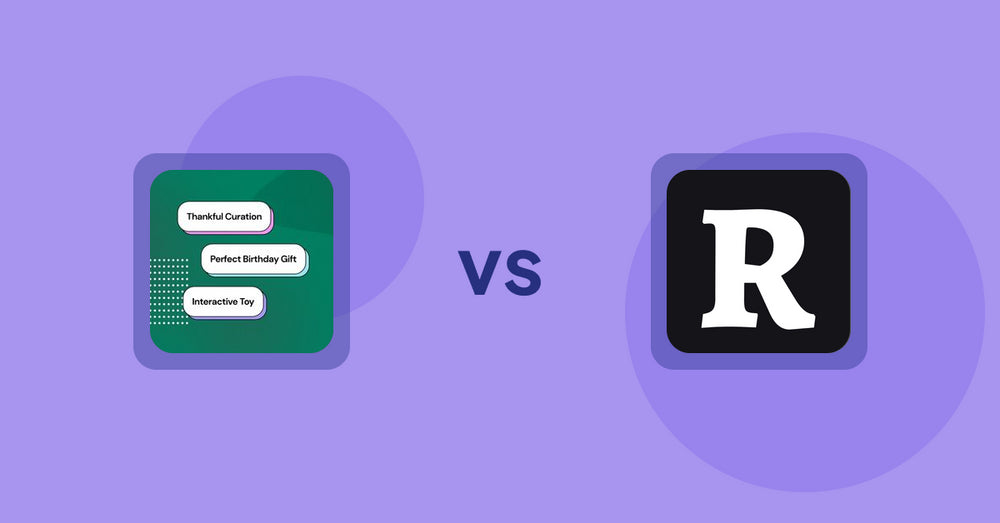
Shopify Product Display Apps: FeatureFrame ‑ Pretty Product vs. AI SEO: Top Product Features
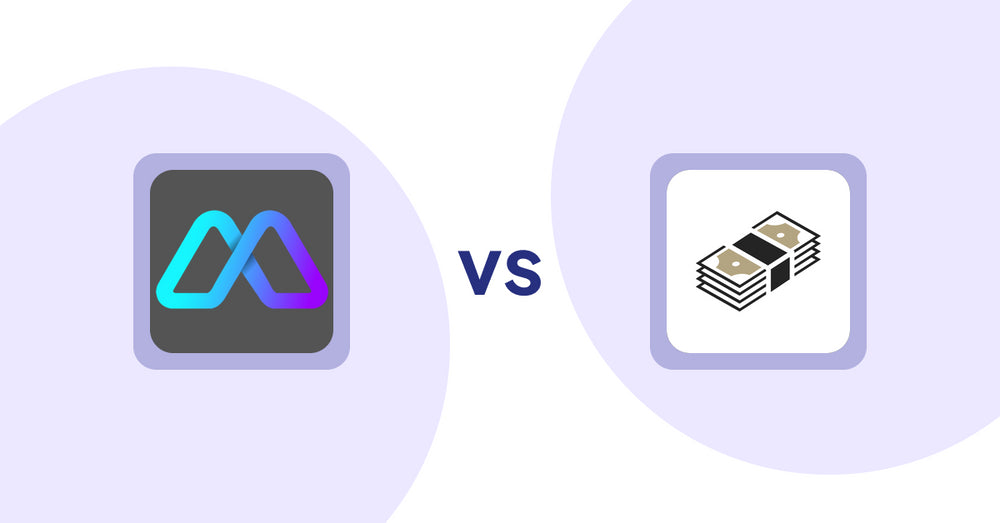
Shopify Product Display Apps: Metadrob: Create Virtual Store vs シンプルクラウドファンディング|お手軽自社クラファン
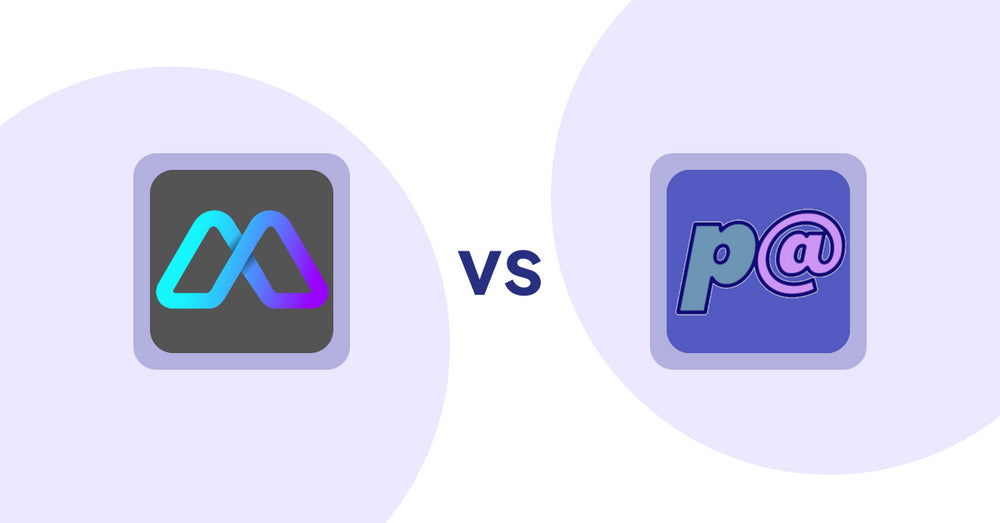
Shopify Product Display Apps: Metadrob: Create Virtual Store vs Parameterizer
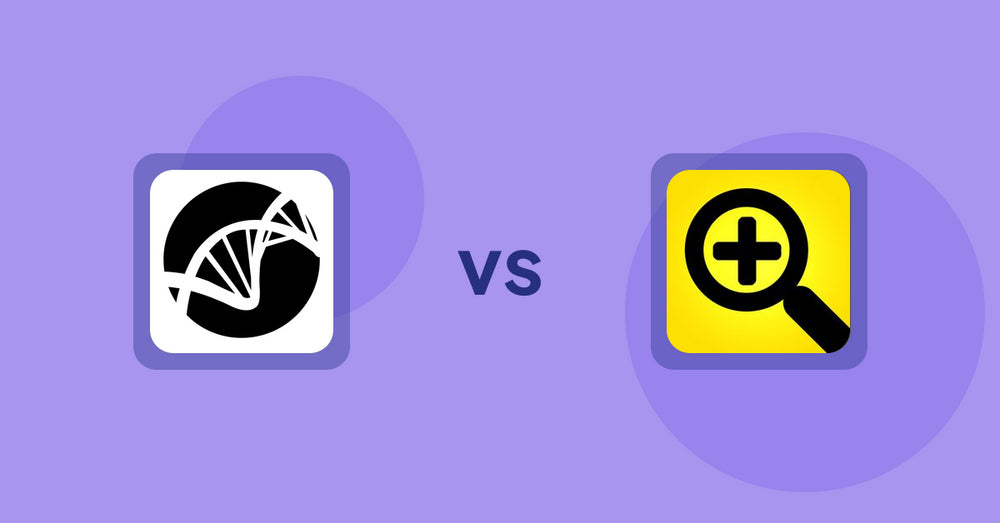
Shopify Product Display Apps: Bike Matrix vs. Fast View: Fastest Quick View
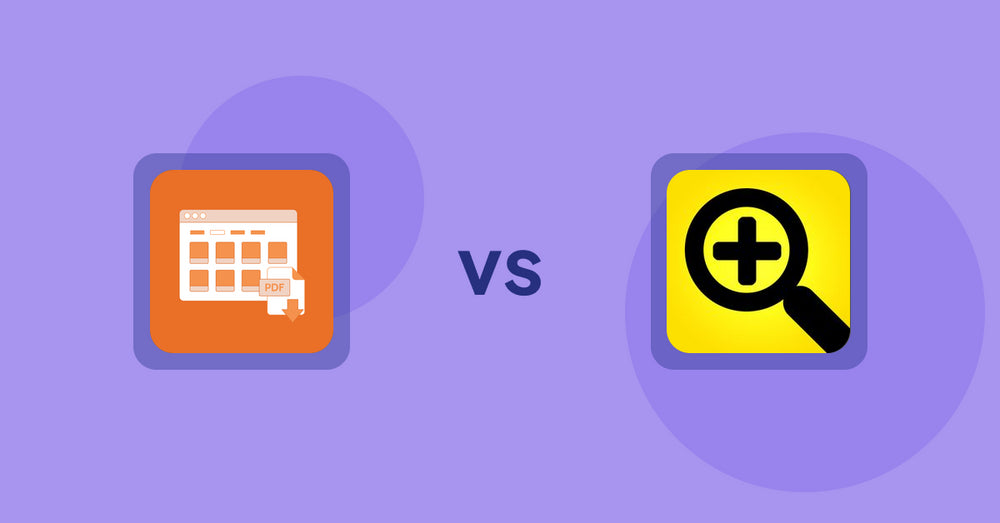
Shopify Product Display Apps: Meetanshi PDF Product Catalog vs Fast View: Fastest Quick View
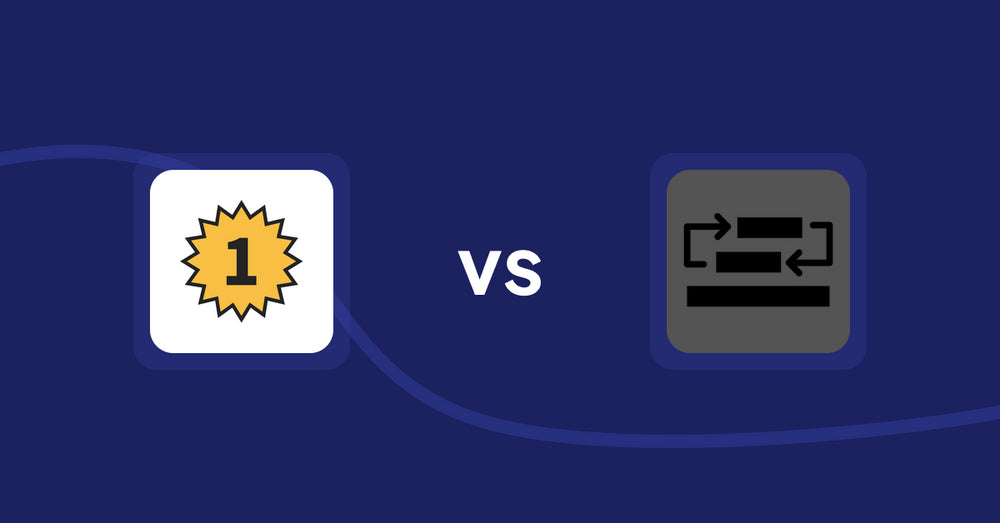
Shopify Product Display Apps: UR: Smart Ranking vs Sortyfi Collection Merchandise
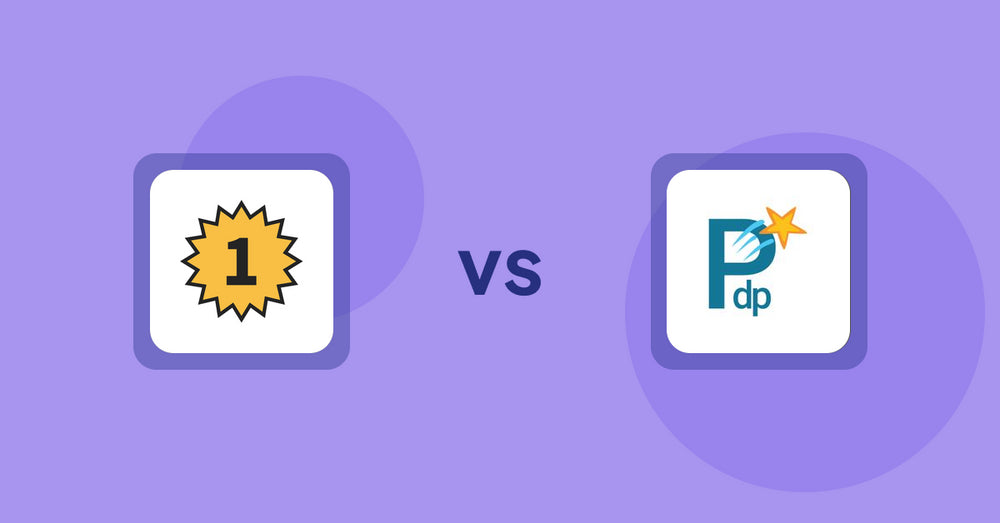
Shopify Product Display Apps: UR: Smart Ranking vs PDP Star
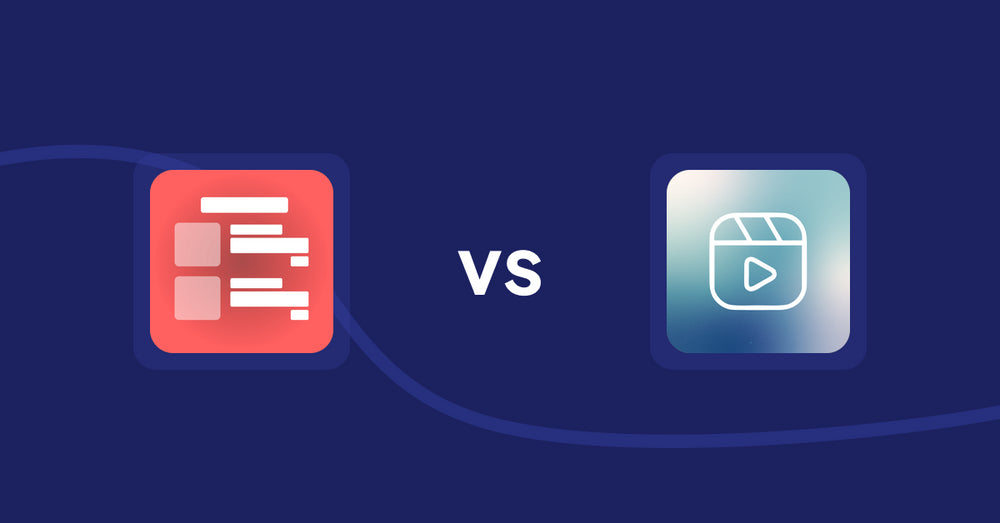
Shopify Product Display Apps: Menulog vs Reelify ‑ Shoppable Reel Video
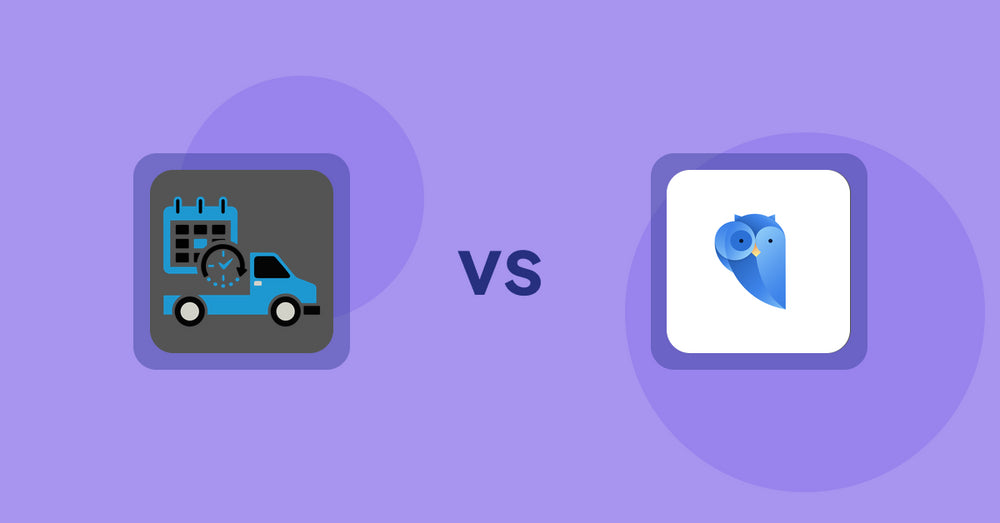
Shopify Product Display Apps: H3 Estimated Delivery vs Findify Search & Merchandise
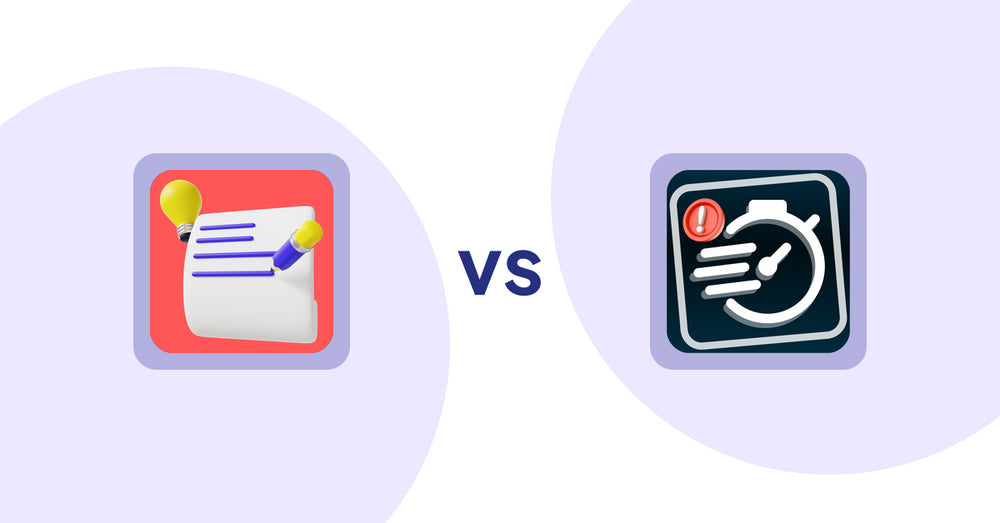
Shopify Product Display Apps: Wordo ‑ ChatGPT AI Description vs Urgency! Low Stock Counter
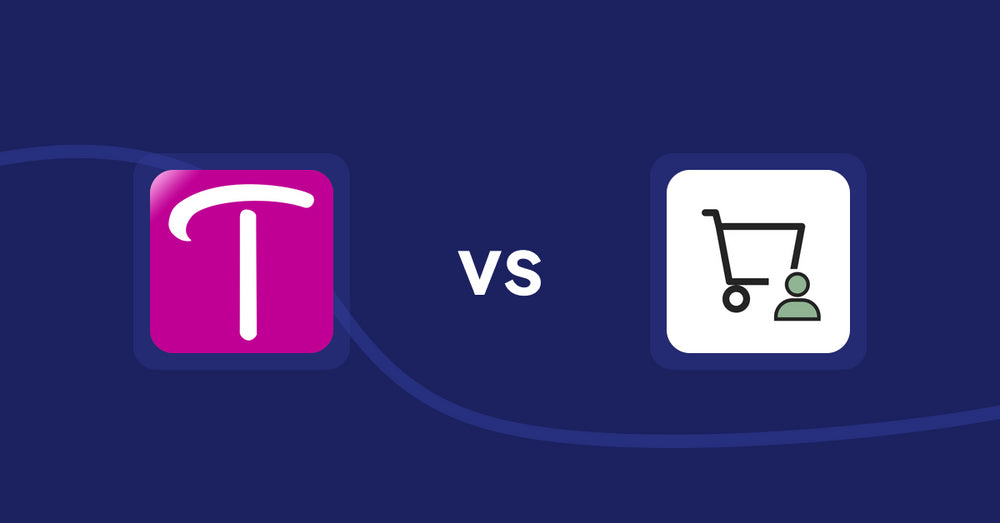
Shopify Product Display Apps: WS Transparency vs シンプル会員注文割引|お手軽ログインセール設定
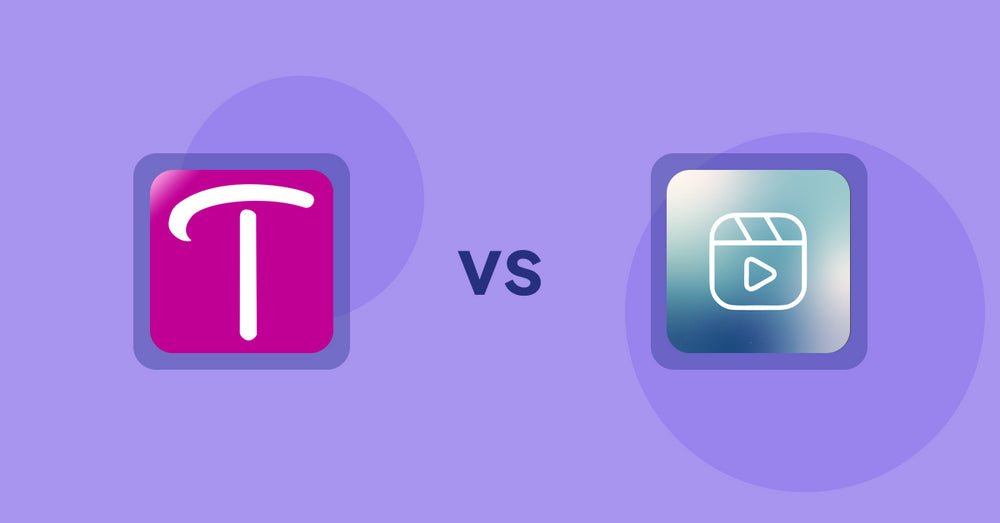
Shopify Product Display Apps: WS Transparency vs Reelify ‑ Shoppable Reel Video
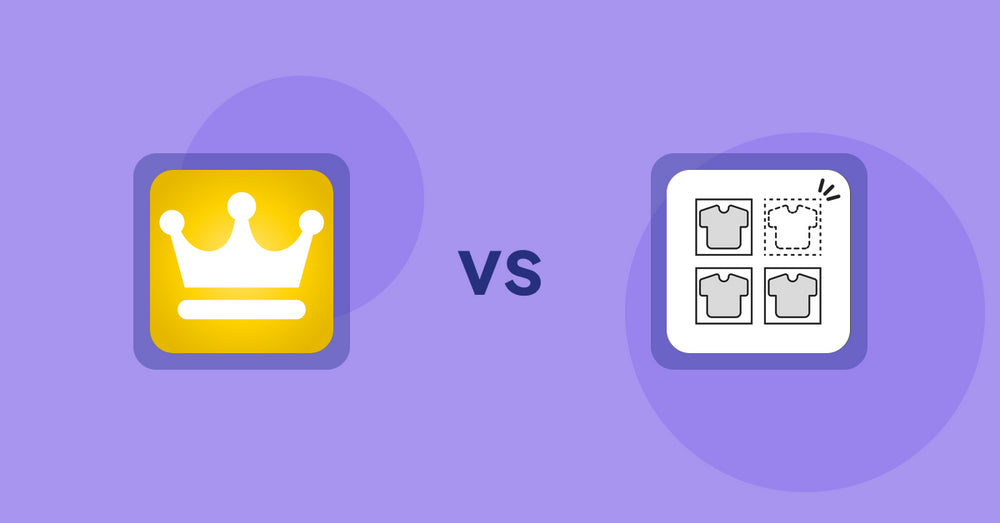
Shopify Product Display Apps: Awesome Ranking vs シンプル売り切れ非表示|在庫切れ商品の表示変更
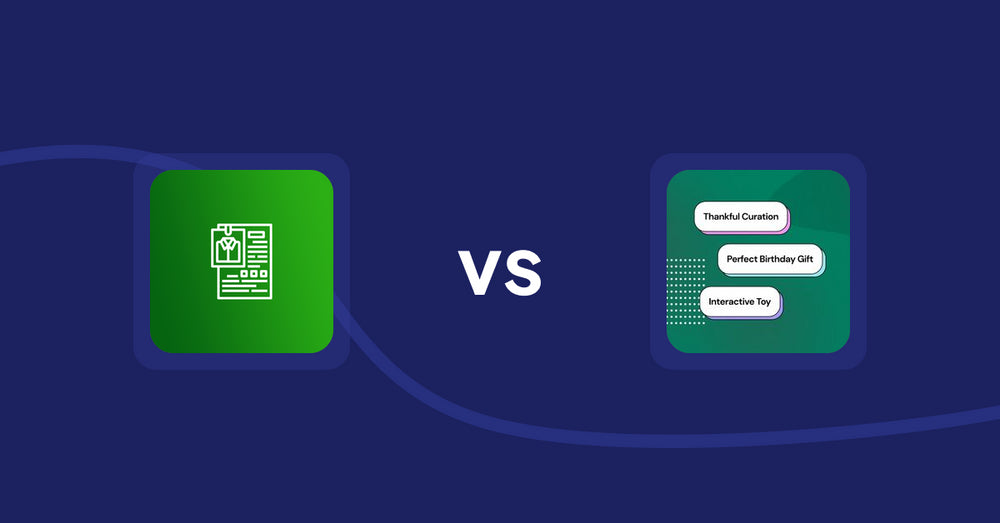
Shopify Product Display Apps: OC Product Size Chart vs FeatureFrame ‑ Pretty Product
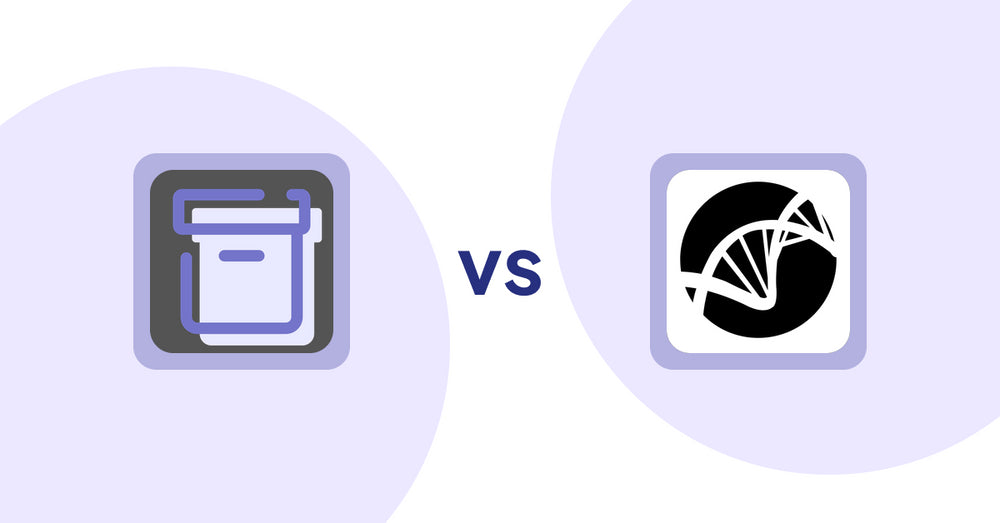
Shopify Product Display Apps: Shelfify vs Bike Matrix
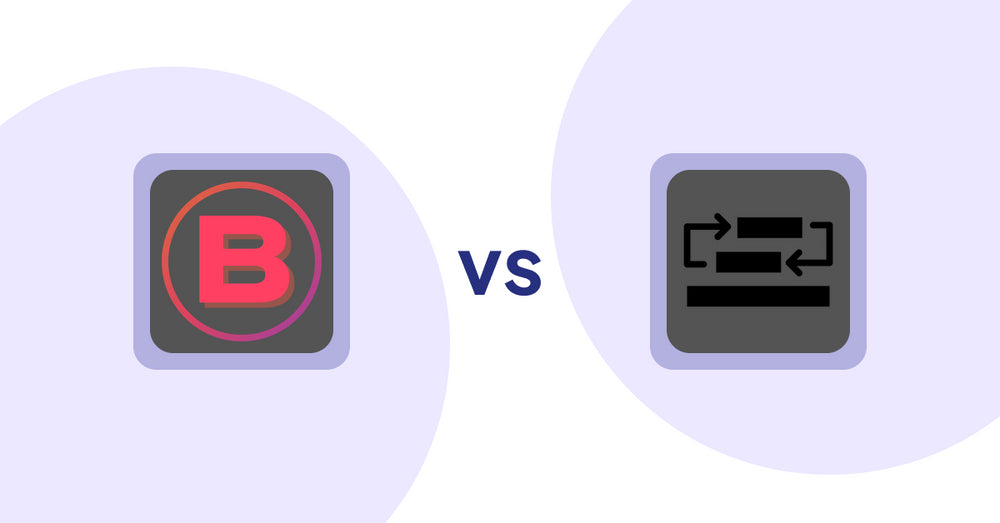
Shopify Product Display Apps: Banter Stories vs Sortyfi Collection Merchandise
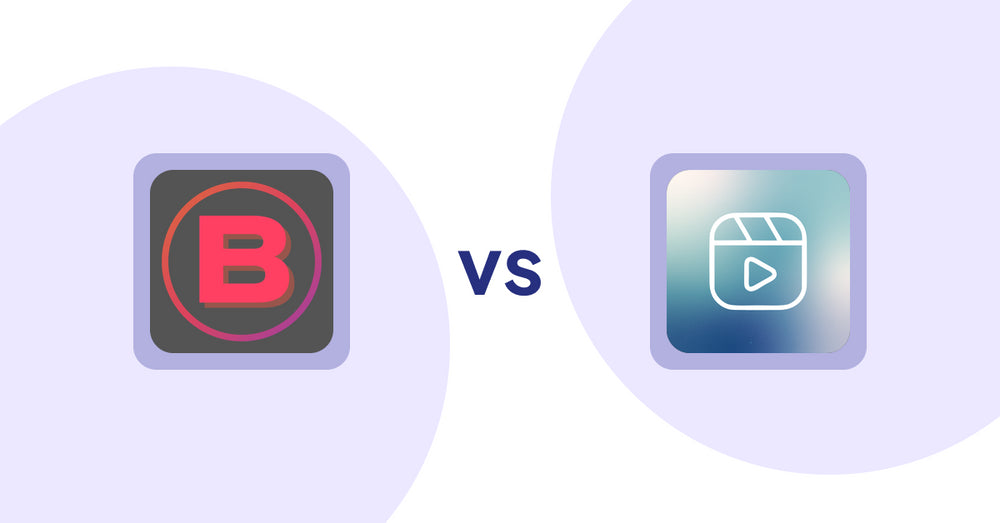
Shopify Product Display Apps: Banter Stories vs. Reelify ‑ Shoppable Reel Video
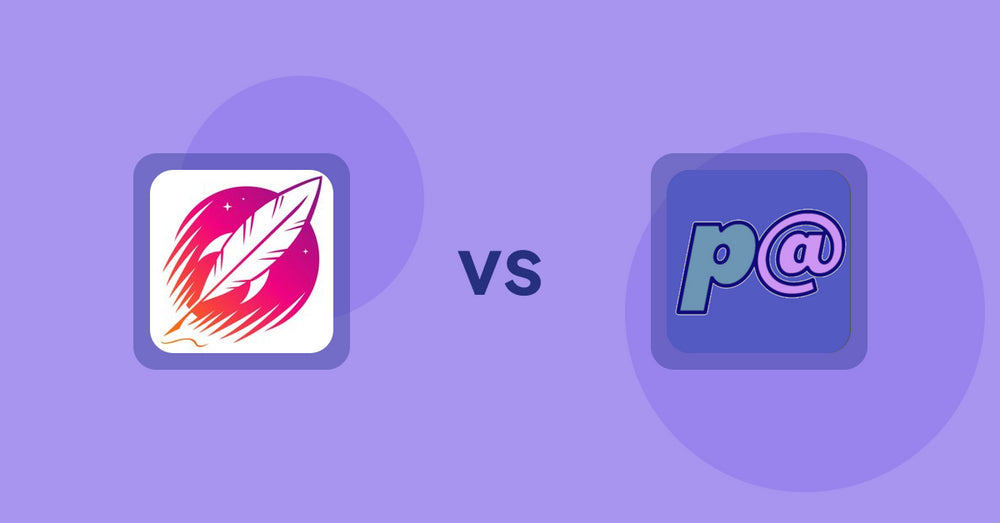
Shopify Product Display Apps: Wordsmith: Content Generator vs Parameterizer

Shopify Product Display Apps: Wordsmith: Content Generator vs Reelify ‑ Shoppable Reel Video
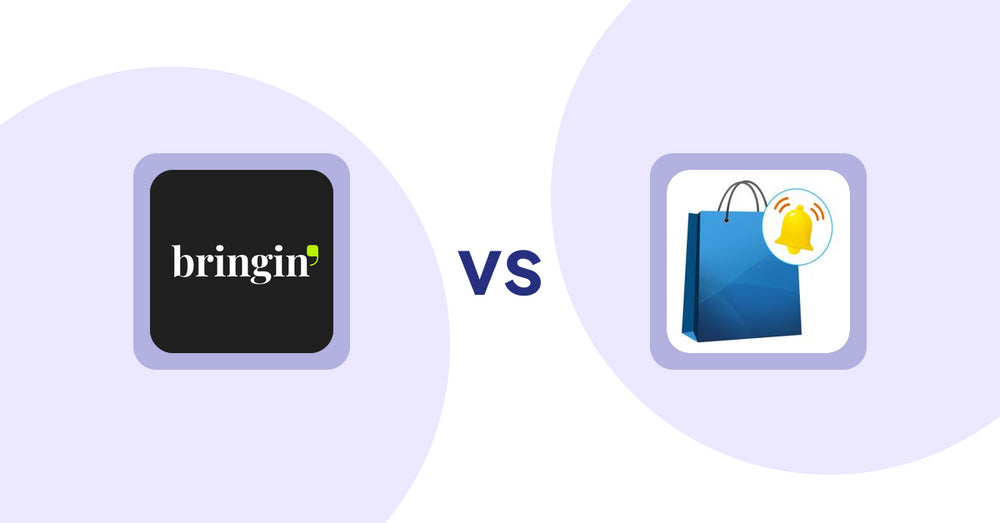
Shopify Product Display Apps: Bringin vs CartBar ‑ Product Purchase Bar
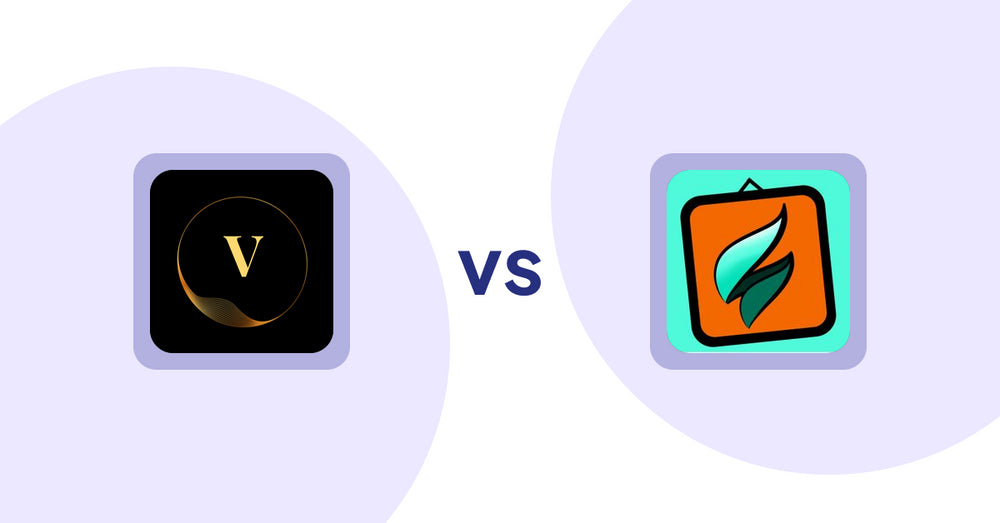
Shopify Product Display Apps: ProductTube vs SMART ‑ Art Product Builder
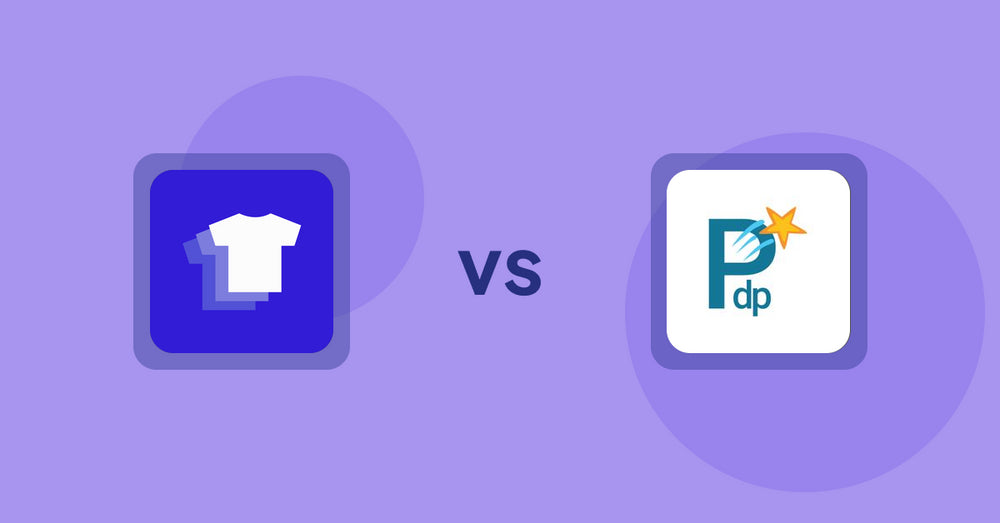
Shopify Product Display Apps: Xpander vs PDP Star
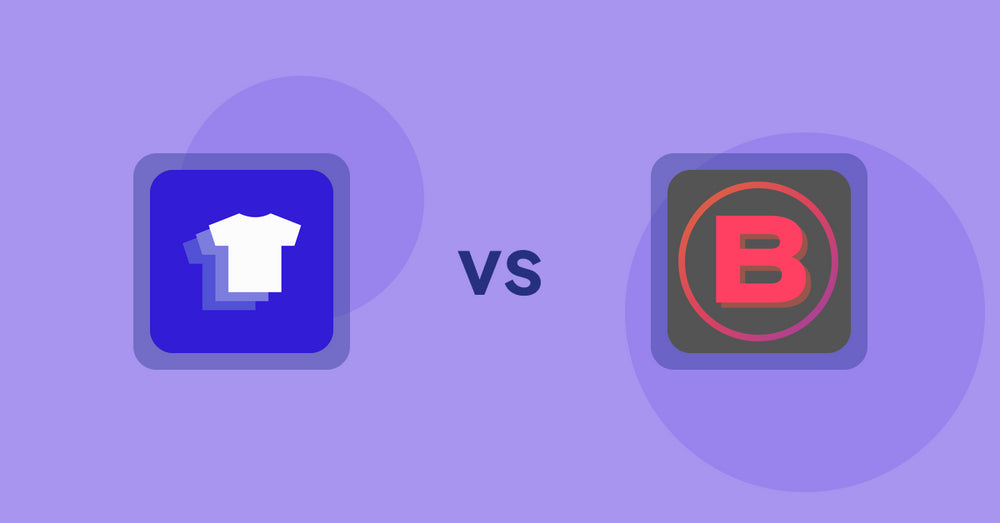
Shopify Product Display Apps: Xpander vs Banter Stories
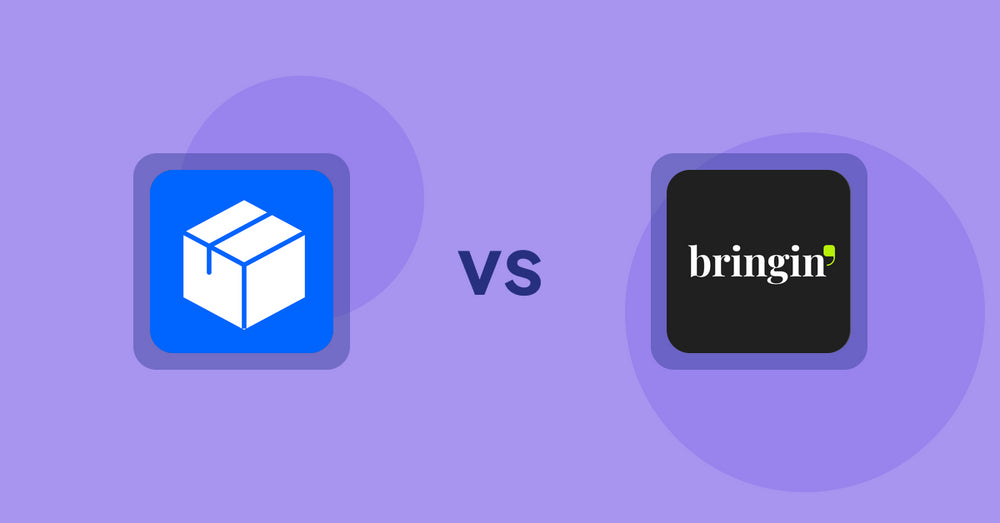
Shopify Product Display Apps: Wonderful Widgets vs Bringin
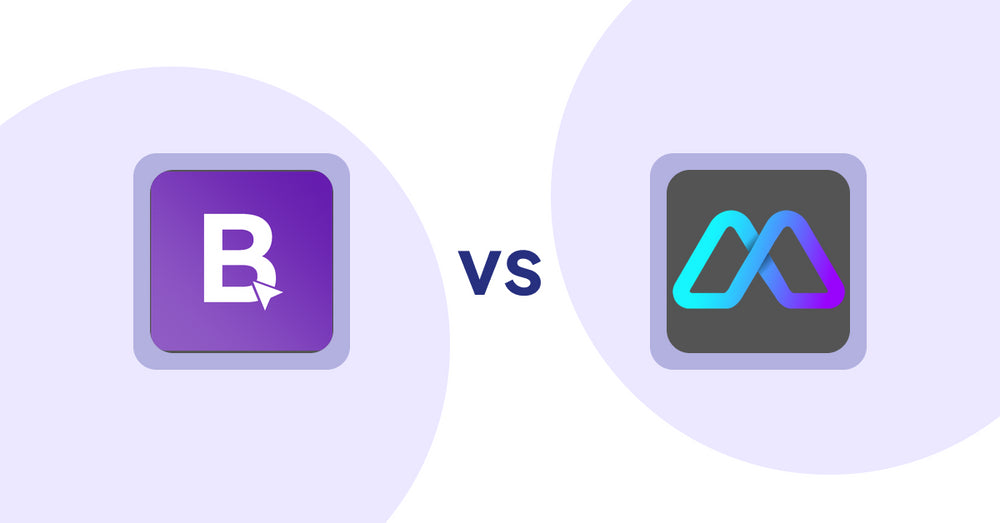
Shopify Product Display Apps: BookE - Rent Property & Service vs Metadrob: Create Virtual Store
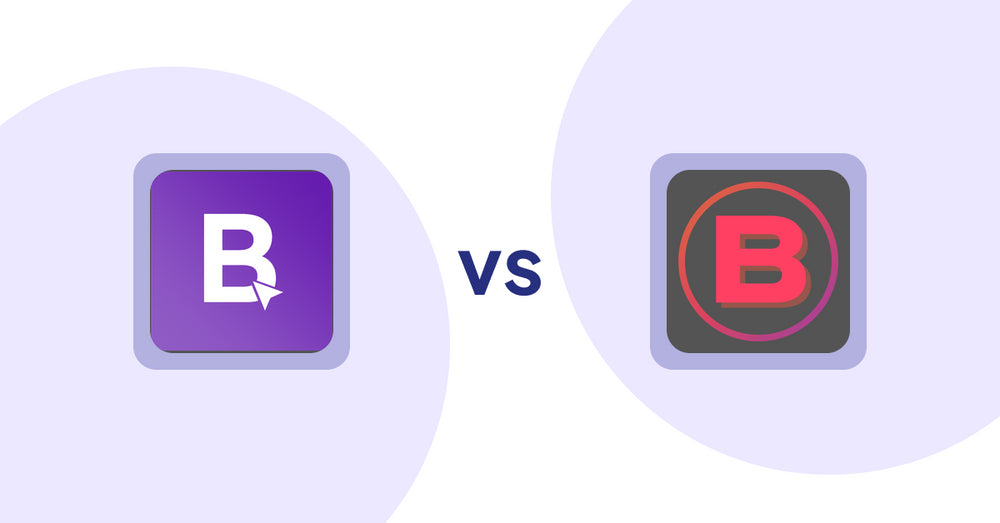
Shopify Product Display Apps: BookE ‑Rent Property & Service vs. Banter Stories
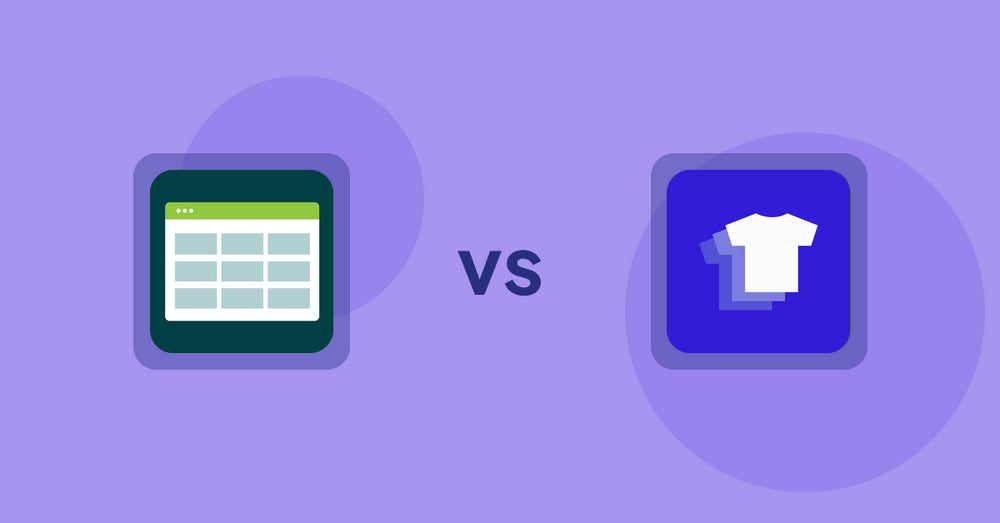
Shopify Product Display Apps: Product Table vs. Xpander

Shopify Product Display Apps: Selling Fast vs CartBar ‑ Product Purchase Bar
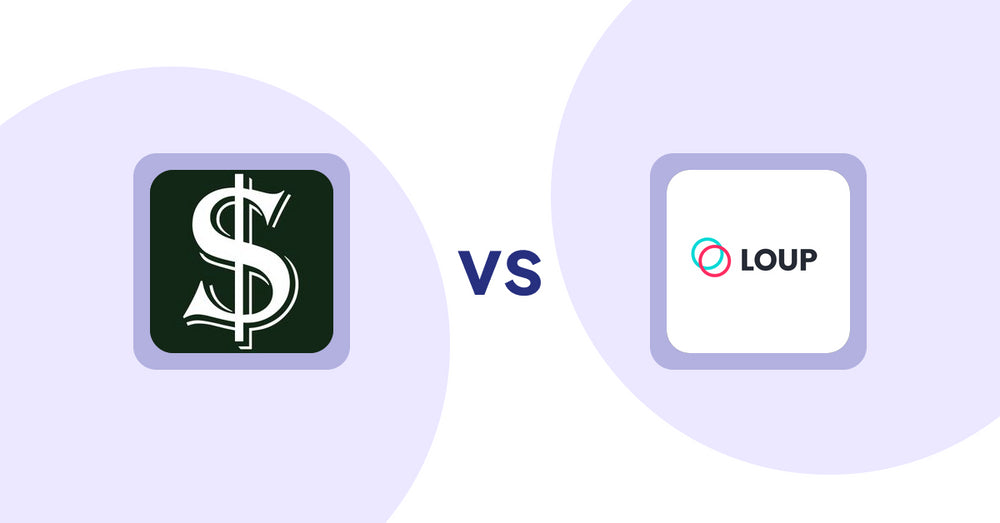
Shopify Product Display Apps: Selling Fast vs. Loup: Sell on Instagram

Shopify Product Display Apps: Selling Fast vs. Findify Search & Merchandise

Shopify Product Display Apps: Selling Fast vs. Aiuta
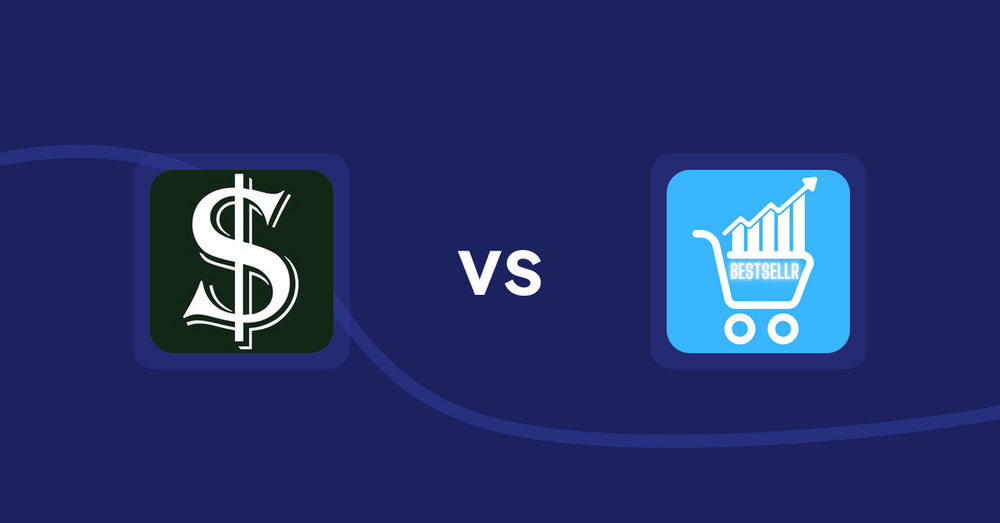
Shopify Product Display Apps: Selling Fast vs Bestsellr

Shopify Product Display Apps: Selling Fast vs ProductTube
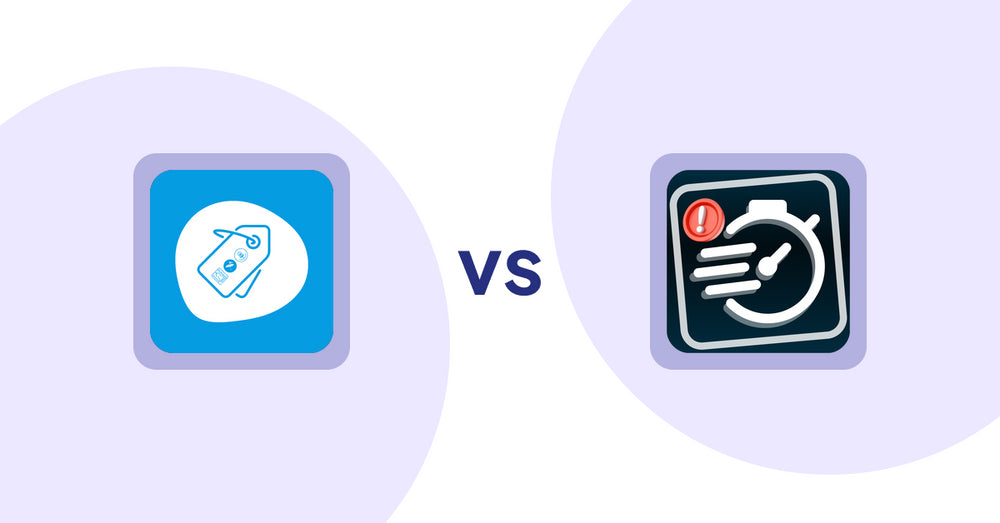
Shopify Product Display Apps: Extendons Product Tag Images vs Urgency! Low Stock Counter
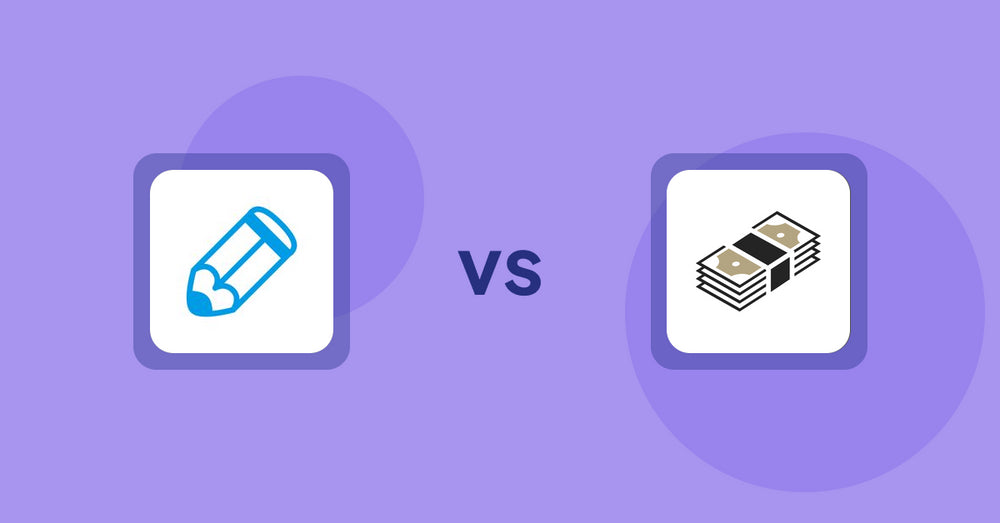
Shopify Product Display Apps: Writer Sofia vs シンプルクラウドファンディング|お手軽自社クラファン
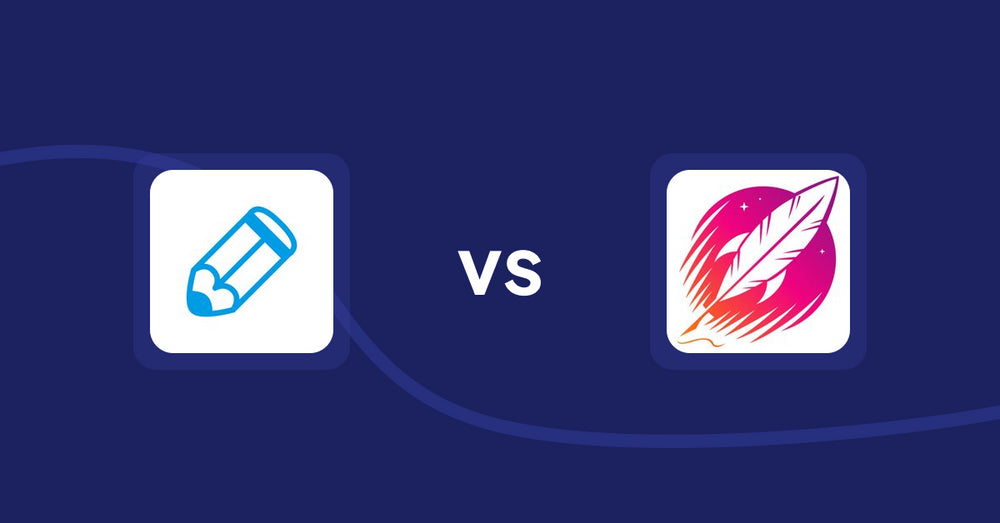
Shopify Product Display Apps: Writer Sofia vs Wordsmith: Content Generator
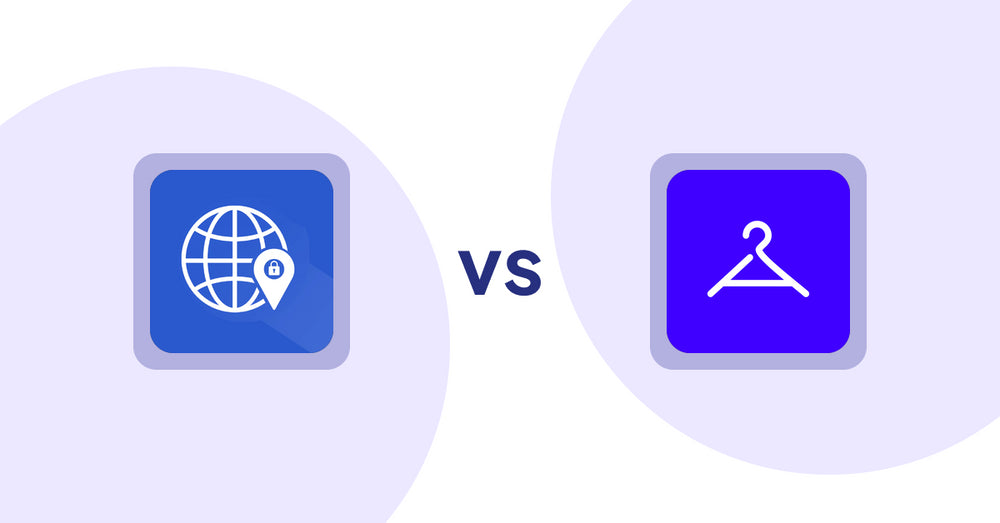
Shopify Product Display Apps: Addify ‑ Country Restrictions vs Aiuta
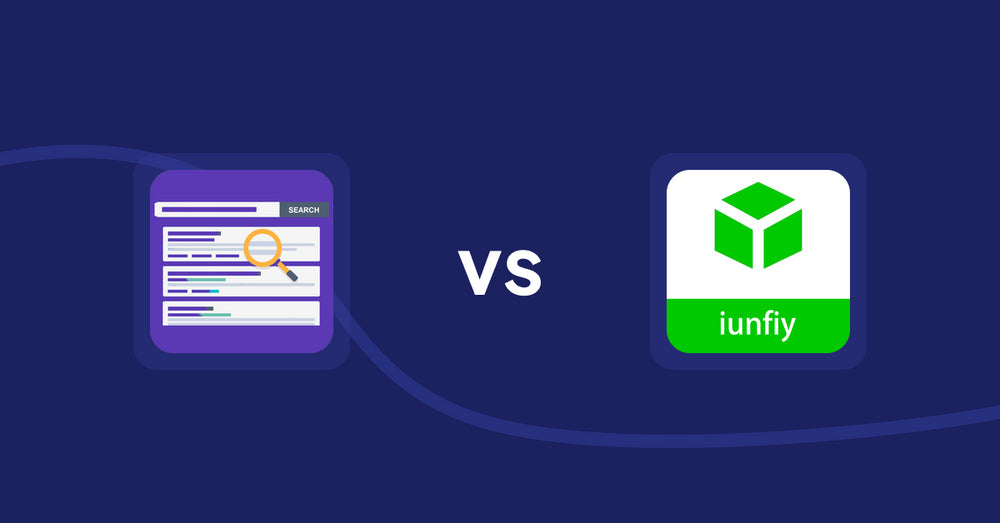
Shopify Product Display Apps: Spark AI Products Description vs iunfiy • Related Products
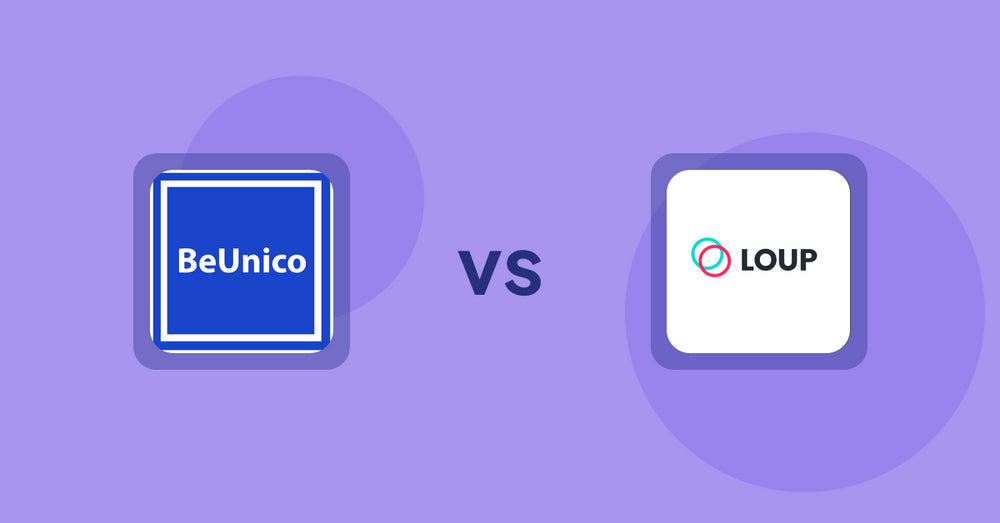
Shopify Product Display Apps: BeUnico vs Loup: Sell on Instagram
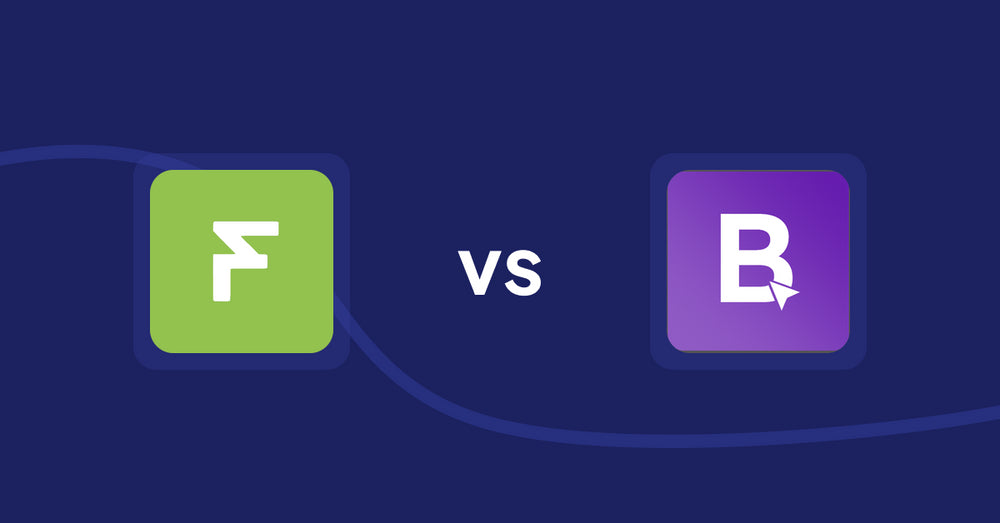
Shopify Product Display Apps: Easy Estimate Shipping vs BookE ‑Rent Property & Service
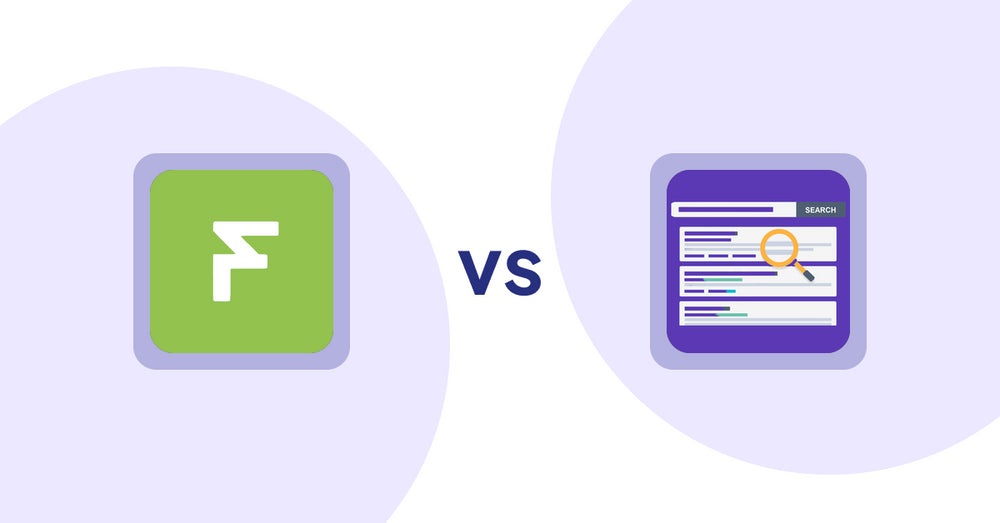
Shopify Product Display Apps: Easy Estimate Shipping vs. Spark AI Products Description
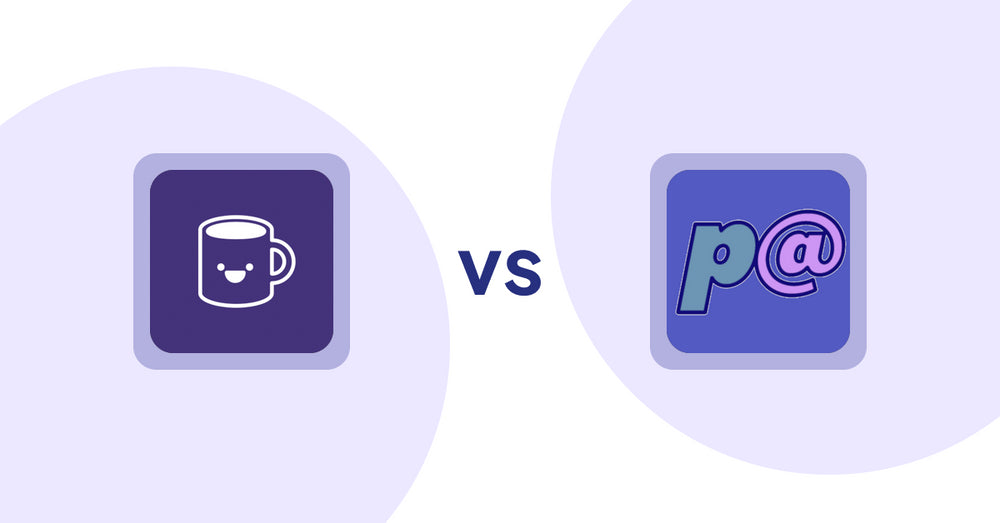
Shopify Product Display Apps: Mugshot Bot vs Parameterizer
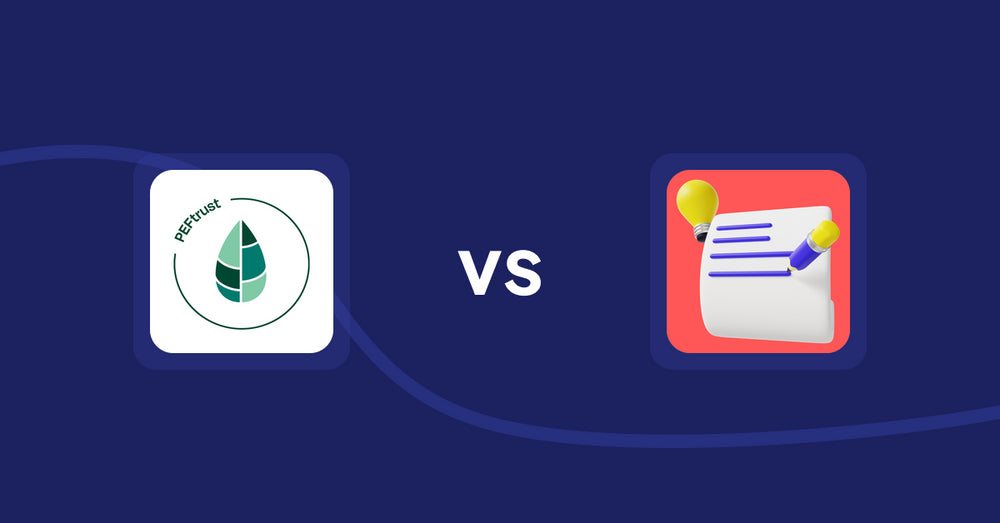
Shopify Product Display Apps: Peftrust vs. Wordo ‑ ChatGPT AI Description

Shopify Product Display Apps: Quick Product Navigator Slide vs Reelify ‑ Shoppable Reel Video
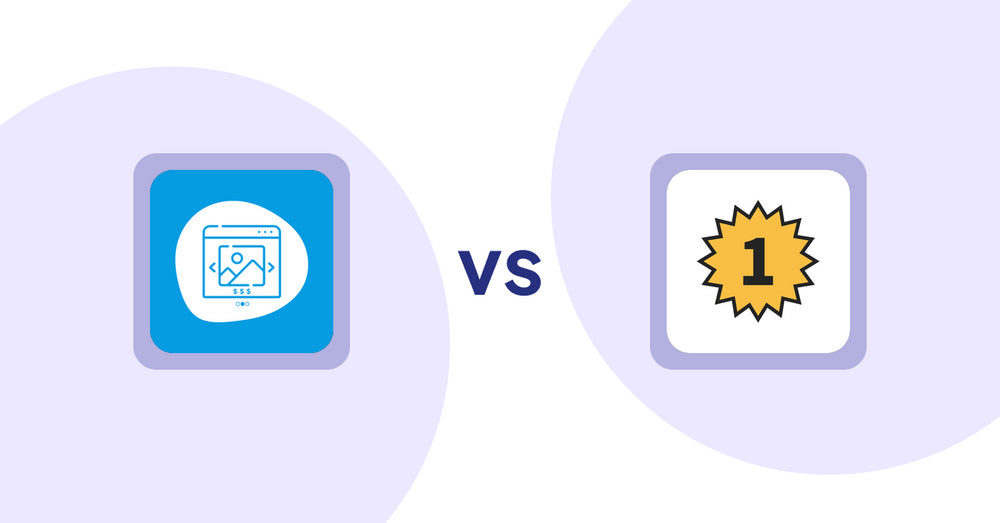
Shopify Product Display Apps: Quick Product Navigator Slide vs. UR: Smart Ranking
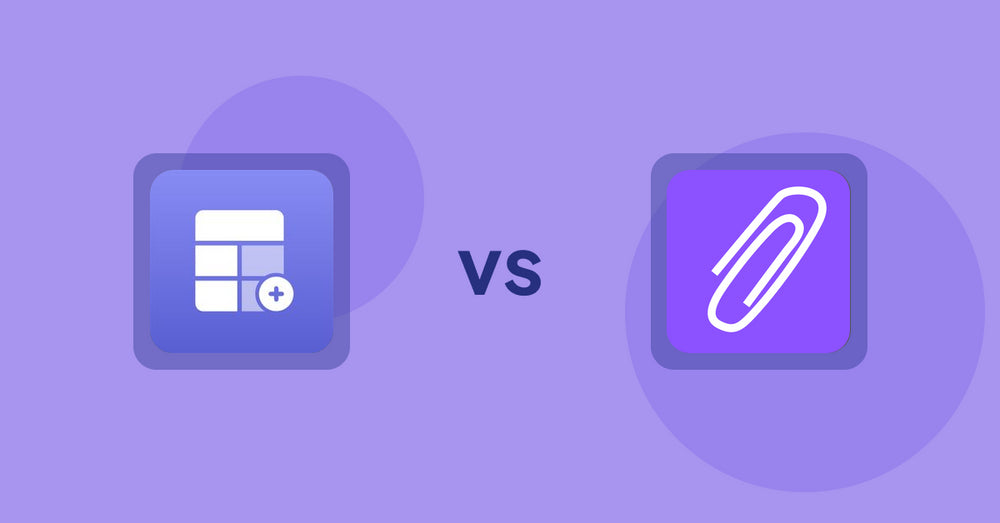
Shopify Product Display Apps: Eazy Specification Tags Table vs Agile Attachments
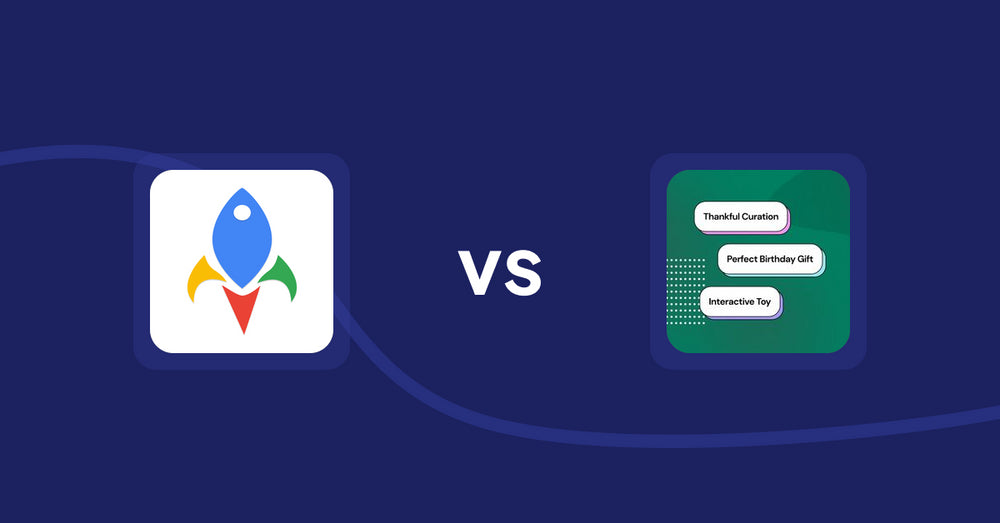
Shopify Product Display Apps: Jedi Back In Stock Admin Alert vs FeatureFrame ‑ Pretty Product
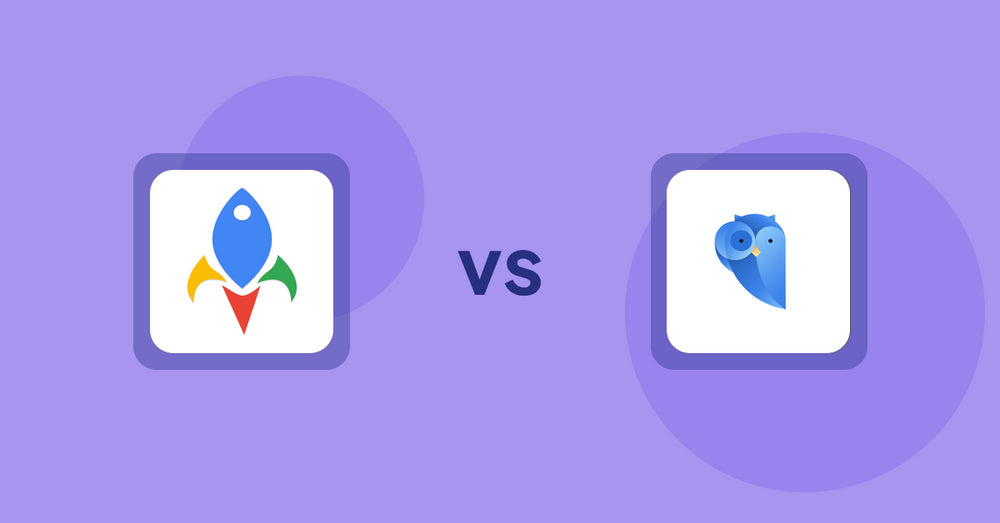
Shopify Product Display Apps: Jedi Back In Stock Admin Alert vs. Findify Search & Merchandise
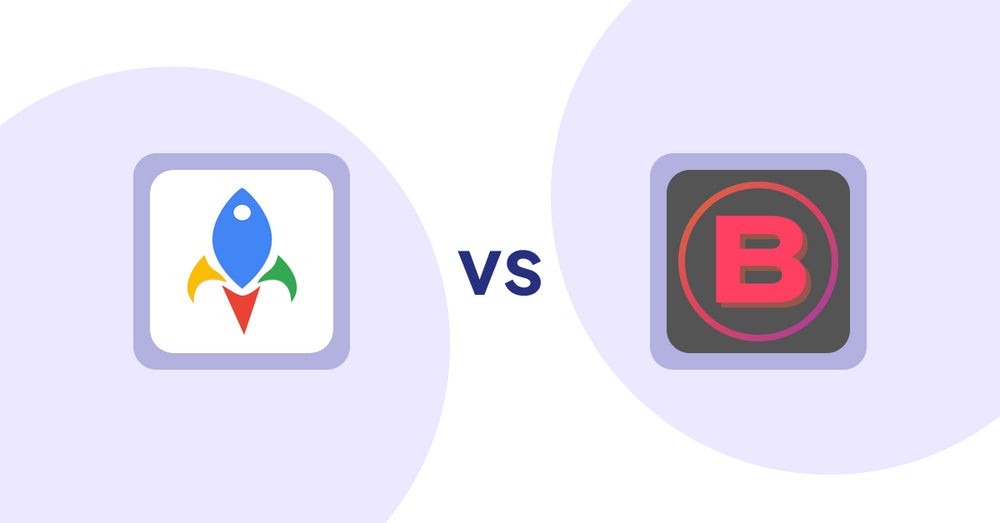
Shopify Product Display Apps: Jedi Back In Stock Admin Alert vs Banter Stories
